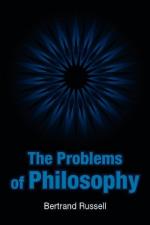|
This section contains 494 words (approx. 2 pages at 400 words per page) |

|
Chapter 14, The Limits of Philosophical Knowledge Summary and Analysis
Many philosophers believe that they can show, a priori, that, for instance, the fundamental doctrines of religious or the rationality of the universe are true. Russell thinks this is in vain. Philosophical knowledge has limits.
The great representative of the view Russell wishes to critique is that of G.W.F. Hegel. On Russell's interpretation, Hegel believes that everything short of the Whole is fragmentary and cannot exist without the rest of the world. From any part of reality, Hegel thought he could see what reality itself must be. The whole is a coherent whole such that one part can be inference from another.
When we forget that all ideas are incomplete or excessively abstract, we will be led to contradiction. Hegel therefore believes in the truest representation of the world...
(read more from the Chapter 14, The Limits of Philosophical Knowledge Summary)
|
This section contains 494 words (approx. 2 pages at 400 words per page) |

|




